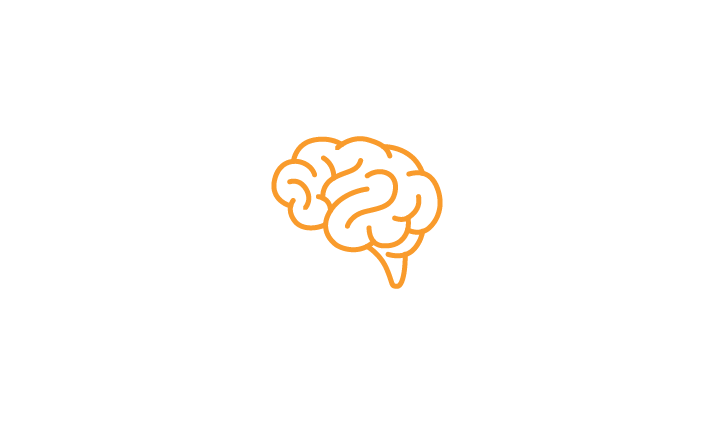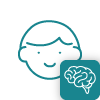Rela Hospital’s Department of Neurology provides comprehensive evaluation and management of a wide range of neurological conditions. Our nervous system is an incredibly complex structure that transmits signals, communicates with different parts of our body, controls behaviour coordination, movement, and so much more.
Read More
Our nervous system is an incredibly complex structure that transmits signals, communicates with different parts of our body, controls behaviour coordination, movement, and so much more. Despite all the medical advancements, research and tons of studies, the human nervous system is a delicate part of the body and requires expert handling. Disorders of the nervous system is often caused due to functional problems occurring in the nerves. A neurologist employs a variety of diagnostic techniques to determine neurological illnesses and the affected region in order to prescribe a treatment regimen. Neurological disorders vary greatly by age and neurologists often specialize in one spectrum of the illness. Owing to the extensive and influential mechanism of the nervous system, neurological treatment is often multidisciplinary.
Dr. Rela Hospital’s Department of Neurology provides comprehensive evaluation and management of a wide range of neurological conditions. It has state of the art neurodiagnostic lab catering to different neurological disorders and 24 X 7 neuroradiological services for the finest neuro treatment in Chennai. It also has a dedicated neuro physiotherapy unit for patient rehabilitation. On the whole the department offers a holistic and empathetic environment for management of neurological diseases, making it one of the top neurology hospitals in Chennai.
A specialist physician known as a neurologist treats disorders of the nervous system, such as the brain, spinal cord, and nerves. They identify, for example, conditions like epilepsy, strokes, and Alzheimer’s. Treatment usually involves the use of medication, therapy, or surgery aimed at promoting the neurological well-being in such patients.
It is recommended to consult a neurologist if you experience any of the following discomforts:
Although these problems might be indicative of an underlying neurological disorder, they are not exclusive to such diseases. Our neurologists will examine your symptoms and run a sequence of tests to understand the root cause of the issue and will direct you towards the right course of treatment.
Medical science has made monumental leaps in terms of treatment methodologies and the evolving technology has brought recovery all the more closer. Dr. Rela Hospital constantly updates our array of medical equipment and is always in sync with modern innovations. Our team of doctors also keep in touch with the latest research to provide the best care available in the world to all our patients.
Recovery from neurological illness is demanding as emotional support also plays a notable role during treatment. In addition to medication and the associated treatment protocols, a patient suffering from neurological diseases requires an environment conducive to recovery. Dr. Rela Hospital believes in comprehensive care and we ensure that our patients receive all the care they need under our roof.
Neurological diseases often extend to the scope of other specialties as well. Our various diagnostic teams are a call away if patients require expert opinion.
At Dr. Rela’s Institute and Medical Centre your nervous system is in safe hands. Our Neurology Department is one of the finest in the country. Comprehensive care coupled with years of experience is the backbone of our quality services and our results are testament to our commitment.
The Department of Neurology has emergency stroke services catering to the neighbourhood hospitals. Many patients have benefitted with the comprehensive stroke care that they received resulting in improvement of neurological deficits.
All our neurointerventional procedures have been successful with patients having a better quality of life.
Regular Botox injections are done with many patients having dramatic improvement and a better quality of life.
We also have 24/7 plasma exchange facilities available resulting in prompt and immediate treatment for polyradiculoneuropathies. Many patients have benefitted from this and have achieved complete power restoration.
The quality of health services revolve around the capabilities of the medical team and associated personnel. Our doctors possess a wealth of experience and have aided in the recovery of patients from all over the globe.


In addition to its own state-of-the-art diagnostic equipment (EMG system, EEG system and evoked potentials device), which are neurological disorders symptom checker, the Department of Neurology is fully supported by the modern infrastructure and excellent scientific personnel of the imaging department (CT, MRI, ultrasounds, interventional radiology, scintigraphy, etc), haematology, clinical biochemistry and immunology, as well as the fully equipped ICU and ODC.
An electroencephalogram functions on the same principle as an EMG and is an electrophysiological method to monitor and record the activity of the brain. The electrodes are applied on the scalp and records the small charges released by the brain. The technician creates certain changes in the environment to incite a response by the brain. It is primarily used to detect epilepsy.
Electromyography is an electrodiagnostic technique utilized to assess the health of muscles and associated nerves. During the test, the technician inserts small needles into the muscles to record its activity. Since electrical signals are used by the nerves to communicate, the response is detected by the electrodes. Another type of EMG involves the use of electrode stickers on the skin to measure signal strength.
A Nerve Conduction Study (NCS), also known as a Nerve Conduction Velocity (NCV) test, is done to identify and evaluate damage to all the nerves that branch out of the brain and spinal cord. The test measures how fast an electrical impulse moves through your nerve by stimulating it with electrode patches attached to your skin. This test is particularly helpful in identifying Carpal tunnel syndrome or Guillain-Barré syndrome.
A lumbar puncture or spinal tap is a neurological exam where spinal fluid sampled from the lumbar or lower back region. The cerebrospinal fluid collected during the test is sent for laboratory analysis. The laboratory results can help to identify infections, subarachnoid hemorrhages and inflammatory conditions. The area where the needle will be pierced is numbed using a local anaesthetic and the whole procedure can be completed in under 45 minutes.
Once these symptoms are observed, our neurologists will do a variety of tests to determine the actual disorder in order to begin a treatment regimen. These neurological exams test an individual’s mental state, reflexes, sensation, autonomic nervous system, cranial nerves, balance and coordination.
We have state-of-the-art Cath Lab that is utilized for Neurointerventional procedures. Our Interventional Neuro-radiologists are adept at performing a plethora of procedures like Mechanical Thrombectomy, Carotid balloon angioplasty and stenting, gel embolization and coiling of aneurysms and AV malformations.
One in ten deaths reported worldwide is attributed to neurological diseases. Certain neurological diseases cannot be cured and the only course of action is to alleviate the potency of the symptoms that might appear. We focus on improving the quality of life of those with serious or terminal neurological diseases.
Like every system in the body, the nervous system is susceptible to malignant tumors, especially in the brain and spinal cord. A neurological tumor or neoplasm is an extremely serious condition and our oncologists and neurosurgeons specialize in the diagnosis, treatment and research relating to it.
Neuro-ophthalmology is a relatively recent subspecialty of neurology that seeks to merge neurology with ophthalmology. It deals with nervous disorders that impairs or compromises vision.
Neurological conditions, be it genetic or otherwise, usually exhibit symptoms much later than its onset. Therefore, diagnosis and mitigation of the problem is often delayed owing to this. The main aspect for proper recovery from neurological diseases is to seek right care at the right time. Early intervention is the key. In order to achieve this, the subtle signs of neurological disorders need to be familiarized and a medical professional should be consulted promptly on discovery. The effects of neurological disorders can manifest both physically and emotionally. A person afflicted with a neurological disease will exhibit one or more of the following symptoms:
Emotional signs of an underlying neurological condition are often subtle and might be more challenging to decipher. Although not exclusive to neurological diseases, the most prevalent emotional signs are mood swings, depression and sudden bursts of anger.
At first glance, these symptoms do not have a significant impact on daily life. However, turning a blind eye to it could prove to be severely detrimental in the long run. If you or your loved ones exhibit any of the above, it is prudent to visit a specialist. Receiving the right care at the right time can significantly hasten recovery.
At Dr. Rela Hospital, our specialists will thoroughly examine your condition and will ensure that you receive the necessary care to restore your health and lead a fulfilling life.
We use advanced techniques and technologies to evaluate and treat both complex and common neurological disorders. We work with a team of doctors trained in various areas to determine the most appropriate treatment for your individual needs.
Owing to the complexity of our nervous system, neurologists specialize in certain areas following a fellowship training to narrow their focus. Our Neurologists come with years of experience which is essential for formulating the most effective treatment method. Neurological diseases, albeit affecting the same regions, manifest differently in each demographic. Therefore, neurologists specialize in diseases and treatment of neurological diseases that affect a particular demographic. For instance, the onset of neurological diseases such as autism, epilepsy and cerebral palsy occurs at a younger age and pediatric neurologists will be best equipped to deal with the disease.
Neurological diseases that adversely affect behavior, memory and cognition falls under the purview of Behavioral Neurology.
Epilepsy is a neurological disorder that causes seizures, fits or prolonged periods of unusual behavior. A minimum of two seizures are generally required to diagnose epilepsy as not all seizures point towards it. Our neurologist in this subspeciality focuses on the diagnosis and treatment of epilepsy.
Headaches and recurring migraines are one of the most common ailments that haunts the public. Headaches are often the result of disruptions in nerve pathways and brain chemicals and can severely affect everyday life.
Abnormal or slow movements are considered movement disorders and generally manifest as tremors. Parkinson’s disease, a degenerative neurological disorder, is one of the most common movement disorders with more than 1% of the population above 60 suffering from it. Our neurologists focusing on movement disorders primarily deals with the therapeutic treatments required to rein in Parkinson’s disease and slow its progress.
Multiple Sclerosis or MS is a disease that afflicts the central nervous system. It is characterized by the damage of the protective sheath surrounding nerves caused by the immune system. This degradation completely disrupts the signal relay mechanism of the nerves and eventually results in permanent damage to the nerves.
Infections that adversely affect the nervous system are termed as neuro-infectious disease. This is often caused when an invading pathogen is not stopped by the body’s immune system. The progression of the infection beyond a certain limit can lead to potentially life-threatening complications and requires treatment from a specialist in order to avoid it.
The muscles in the body are controlled by the nervous system. An ailment that affects the muscles and neuro-muscular junction are termed as neuro-muscular diseases. Our neurologists focus on the therapies that treat the underlying cause of these muscle problems.
If you have symptoms or medical concerns related to the nervous system, you should consult a neurologist. For example, they might have headaches, seizures, memory problems, or even conditions like Parkinson’s disease, multiple sclerosis, or neuropathies.
Specialized care and treatment is provided by neurologists who have expertise in diagnosing and treating these disorders. When you have a neurological issue, it is important to visit a neurologist for evaluation and management.
The primary symptoms of neurological disorders can vary widely depending on the specific condition, but some common symptoms include:
Neurological disorders cover a wide spectrum of conditions, and thus, symptoms may vary considerably from one disorder to another. Visit a neurologist if you experience any strange neurological symptoms that do not go away or improve.
The prevalence of autoimmune neurological disorders is dependent on the specific disease. Other autoimmune neurological disorders are more common, while some others are rare. Although there are some common conditions like multiple sclerosis (MS) and myasthenia gravis, which are relatively more prevalent, they affect a large number of people across the globe. Disorders such as neuromyelitis optica and stiff person syndrome are considered rare nonetheless.
It is vital to visit a medical doctor or neurologist to establish the exact prevalence and risk factors of autoimmune neurological disorders and obtain proper diagnosis and treatment where necessary. The prevalence and risk factors will also be region-specific, as well as based on the demographics of the population.
A neurologist is a physician who specialises in diagnosing diseases affecting the nervous system, which comprises the brain, spinal cord, and peripheral nerves. They handle situations like epilepsy, stroke, multiple sclerosis, Alzheimer’s disease, and migraine.
Neurologists design treatment plans that may entail administering medication, therapy, or surgery, as the case may be, to assist patients with neurological disorders to deal with their symptoms and improve their health. They also conduct research to advance medical knowledge in the field of neurology.



